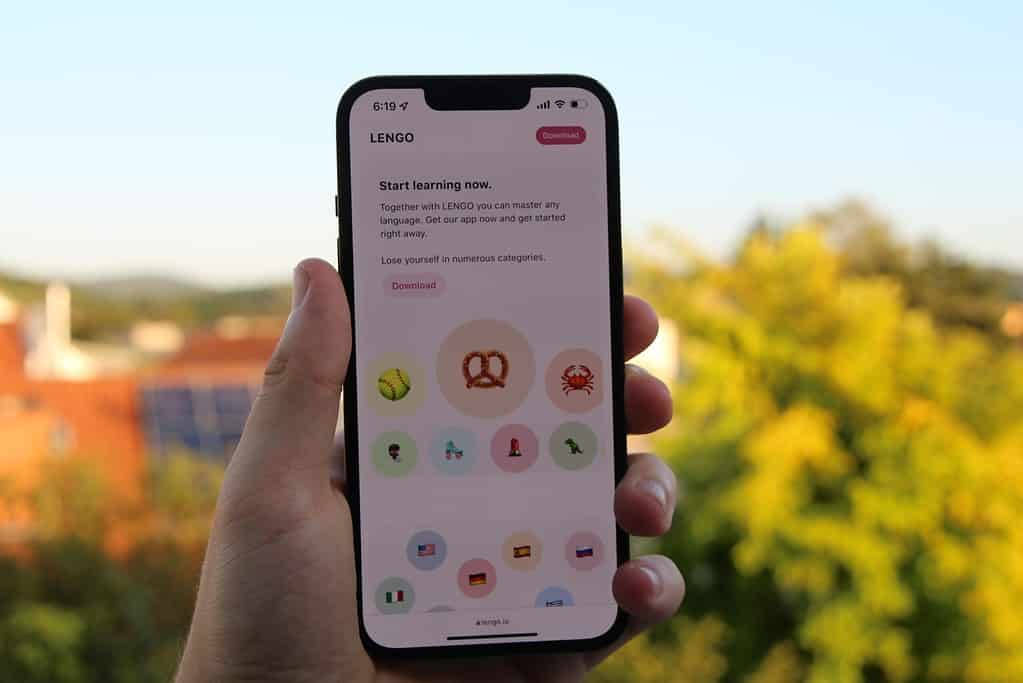Mastering a new language can be a daunting task, especially when it comes to speaking. French, with its melodious sounds and rich cultural context, is no exception. However, with consistent practice and the right strategies, anyone can improve their French speaking skills. Here are ten effective ways to incorporate French speaking practice into your daily routine.
1. Engage in Daily Conversations
One of the most effective ways to enhance your speaking skills is by engaging in daily conversations. Whether it’s with a friend, family member, or a language partner, speaking regularly helps reinforce vocabulary and grammar.

Consider setting aside a specific time each day to converse in French. This could be during breakfast, lunch, or even just a casual evening chat. The key is consistency; the more you practice, the more comfortable you will become. Additionally, try to incorporate a variety of topics into your conversations. Discussing everything from current events to personal interests not only makes the dialogue more engaging but also exposes you to a broader range of vocabulary and expressions.
Find a Language Partner
Finding a language partner can significantly enhance your speaking abilities. Look for someone who is either a native French speaker or someone who is also learning the language. This mutual exchange can provide a relaxed environment to practise speaking without the fear of making mistakes. Moreover, consider joining local language meet-ups or online forums where you can find partners who share similar interests. Engaging with someone who is equally passionate about learning can create a supportive atmosphere that encourages both of you to improve.
Use Language Exchange Apps
In today’s digital age, language exchange apps have made it easier than ever to connect with native speakers. Apps like Tandem or HelloTalk allow users to converse via text, voice, or video calls. This flexibility means you can practise speaking whenever it suits you. Furthermore, many of these platforms offer features such as correction tools and language games, which can make the learning process more interactive and enjoyable. By utilising these resources, you can not only enhance your speaking skills but also gain insights into cultural nuances that are often lost in traditional classroom settings.
2. Join a French Conversation Group
Joining a conversation group can provide a structured environment for practising French. Many local communities or language schools offer regular meet-ups where learners can engage in discussions on various topics. These sessions typically focus on real-life scenarios, allowing participants to apply their language skills in practical contexts, which is invaluable for building confidence in speaking.
These groups often cater to different proficiency levels, so you can find one that matches your skills. The social aspect of these gatherings also makes learning more enjoyable, as you can share experiences and tips with fellow learners. Additionally, many groups incorporate fun activities such as themed discussions, games, or even cooking sessions where participants can prepare traditional French dishes while conversing in the language, creating a lively and immersive learning experience.
Online Meet-ups
If local groups are not available, consider joining online meet-ups. Platforms like Meetup or Facebook groups often host virtual events where you can practise speaking with others from around the world. This not only enhances your language skills but also broadens your cultural understanding. Engaging with native speakers or advanced learners during these online sessions can provide insights into colloquial expressions and regional dialects, enriching your grasp of the language.
Moreover, many online conversation groups utilise various multimedia resources, such as films, music, and articles, to stimulate discussion and keep the sessions dynamic. This approach not only makes the learning process more engaging but also helps participants to learn vocabulary in context, making it easier to remember and use in everyday conversations. With the flexibility of online meet-ups, you can connect with a diverse array of individuals, fostering friendships that extend beyond language learning and into cultural exchange.
3. Incorporate French Media into Your Daily Life
Surrounding yourself with French media is an excellent way to immerse yourself in the language. Watching French films, listening to French music, or tuning into French podcasts can help you become more familiar with the sounds and rhythms of the language. The variety of media available today means you can choose content that aligns with your interests, whether it’s classic films, contemporary series, or even documentaries that explore French culture and history.

While consuming media, try to repeat phrases or dialogues aloud. This mimicking technique can improve your pronunciation and help you remember new vocabulary. Additionally, consider discussing what you’ve watched or listened to with a partner to reinforce your speaking skills. Engaging in conversations about the themes and characters can deepen your understanding and provide an opportunity to use new expressions in context.
Watch French Films and Series
French cinema offers a plethora of films and series that can be both entertaining and educational. Choose films with subtitles in French to follow along and grasp the dialogue better. After watching, summarise the plot or discuss your thoughts in French to practise speaking. You might explore various genres, from romantic comedies like “Amélie” to gripping dramas such as “La Haine,” each providing unique insights into French society and culture. Additionally, consider joining a film club or online forum where you can share your thoughts and recommendations with fellow enthusiasts, further enriching your learning experience.
Listen to French Music
French music is not only enjoyable but also a fantastic resource for language learning. Listen to songs and try to sing along. Pay attention to the lyrics, and consider looking them up to understand their meaning. This can enhance your vocabulary and comprehension skills. Delve into different musical styles, from the classic chansons of Édith Piaf to the modern pop sounds of artists like Christine and the Queens. Exploring the cultural context behind the music can also provide a deeper appreciation for the language and its nuances, making your learning journey even more rewarding.
4. Use Flashcards for Vocabulary Building
Building a robust vocabulary is crucial for effective communication. Flashcards can be a powerful tool for memorising new words and phrases. Create flashcards with a French word on one side and its English translation on the other.
To make this exercise more interactive, try saying the word aloud when you flip the card. This not only reinforces your memory but also provides speaking practice. Incorporate these flashcards into your daily routine, perhaps during your commute or while waiting in line. You might also consider using colour-coded cards to categorise words by themes, such as food, travel, or emotions, which can help you make connections and recall words more easily.
Digital Flashcard Apps
Consider using digital flashcard apps like Anki or Quizlet, which allow you to create custom decks and even share them with others. These apps often include audio features, enabling you to hear the correct pronunciation and practise speaking along. Furthermore, many of these platforms utilise spaced repetition algorithms, which optimise your study sessions by presenting words at intervals that enhance long-term retention. This means you’ll spend less time on words you already know and focus more on those that require additional practice.
Additionally, engaging with the community features of these apps can provide further motivation. You can join study groups, participate in challenges, or even contribute to shared decks, which can expose you to a wider range of vocabulary and learning styles. By collaborating with peers, you not only enrich your own learning experience but also gain insights into different methods of language acquisition that may work better for you.
5. Set Specific Speaking Goals
Setting clear and achievable goals can significantly enhance your motivation and focus. Whether it’s learning a certain number of new words each week or being able to hold a five-minute conversation, having specific targets can guide your practice sessions. By breaking down larger objectives into smaller, manageable tasks, you can create a structured approach to your language learning that feels less daunting and more rewarding.
Document your progress to see how far you’ve come. This not only boosts your confidence but also helps identify areas where you need more practice. Regularly reassess your goals to keep them challenging yet attainable. Consider using a journal or an app to track your achievements; seeing your improvements over time can be incredibly motivating and can reinforce your commitment to mastering the language.
Daily Speaking Challenges
Consider implementing daily speaking challenges. For instance, aim to describe your day in French or narrate a story. These challenges can push you to think on your feet and improve your fluency. Additionally, you might engage with a language partner or join a conversation group where you can practice these challenges in a supportive environment. The social aspect of learning can make the process more enjoyable and less isolating.
Moreover, you could explore themed challenges, such as discussing a particular topic each week, like travel, food, or culture. This not only broadens your vocabulary but also encourages you to delve deeper into the nuances of the language. By preparing for these discussions, you’ll find yourself naturally expanding your linguistic repertoire, while also gaining insights into the cultural context behind the words. Embracing these daily speaking challenges can transform your language learning experience into a dynamic and interactive journey.
6. Record Yourself Speaking
Recording yourself speaking can be a valuable tool for self-assessment. It allows you to hear your pronunciation, intonation, and fluency. Listen to your recordings and identify areas for improvement. By comparing your recordings over time, you can track your development and gain insights into the nuances of the language that you may not have noticed before. This method not only enhances your listening skills but also sharpens your ability to articulate thoughts more clearly in French.
Over time, you should notice your progress, which can be incredibly motivating. This practice also helps in building confidence, as you become more accustomed to hearing your own voice in French. The act of speaking out loud and recording it can also reduce the anxiety that often accompanies language learning, making it easier to express yourself without fear of making mistakes. Furthermore, you might consider sharing your recordings with a tutor or language partner, who can provide constructive feedback and encouragement.
Use Voice Recognition Software
Voice recognition software can also be beneficial. Applications like Google Translate or language learning platforms often have features that allow you to speak and receive immediate feedback on your pronunciation. This can help you refine your speaking skills in real-time. The technology has advanced significantly, and many programs are now capable of recognising subtle differences in accents and speech patterns, which can be particularly useful for learners aiming to achieve a more authentic sound.
Moreover, integrating voice recognition into your study routine can make the learning process more interactive and enjoyable. Many applications gamify the experience, offering rewards for accurate pronunciation or consistency in practice. This not only encourages regular engagement but also helps to reinforce learning through repetition. As you become more adept at using these tools, you may find that your speaking abilities improve at a faster pace, allowing you to engage in more complex conversations with native speakers sooner than expected.
7. Read Aloud in French
Reading aloud is an excellent way to practise pronunciation and improve fluency. Choose French books, articles, or even children’s stories to read. This not only helps with speaking but also enhances your reading comprehension.
As you read, pay attention to the rhythm and flow of the language. Try to mimic the natural intonation of native speakers. This practice can significantly improve your speaking abilities over time. Furthermore, incorporating a variety of genres into your reading can expose you to different styles and contexts, enriching your vocabulary and understanding of the language. For instance, poetry can introduce you to lyrical expressions, while novels may offer complex sentence structures and character dialogues that reflect everyday speech.
Join a Book Club
Joining a French book club can add a social element to your reading practice. Discussing books with others in French encourages conversation and helps you articulate your thoughts more clearly. It also exposes you to different vocabulary and expressions used in literary contexts.
In addition to fostering a sense of community, participating in a book club can motivate you to read more consistently. The shared experience of exploring a text together allows for deeper insights and interpretations that you might not have considered on your own. Moreover, many book clubs host themed discussions or invite guest speakers, such as authors or literary critics, which can further enhance your understanding of the material and provide you with a broader perspective on French literature and culture.
8. Use Language Learning Platforms
Language learning platforms like Duolingo, Babbel, or Rosetta Stone offer structured lessons that often include speaking exercises. These platforms are designed to help learners progressively build their skills, making them an excellent resource for daily practice.
Many of these platforms also feature interactive speaking exercises where you can practise pronunciation and receive feedback. Incorporating these lessons into your daily routine can help maintain a steady learning pace. Additionally, many of these applications employ gamification techniques, turning the learning process into a more engaging experience. Users can earn points, unlock levels, and even compete with friends, which can significantly boost motivation and encourage consistent usage.
Participate in Live Classes
For those who prefer a more guided approach, consider enrolling in live online classes. These classes provide the opportunity to interact with a teacher and fellow students, allowing for real-time speaking practice and immediate feedback. The dynamic nature of live classes can create a more immersive environment, where learners can ask questions, clarify doubts, and engage in discussions that enhance their understanding of the language.
Moreover, many instructors incorporate cultural elements into their lessons, offering insights into the customs, idioms, and nuances of the language being studied. This not only enriches the learning experience but also prepares students for real-world conversations. Participating in group activities or role-playing scenarios during these classes can further bolster confidence, as learners practice speaking in a supportive and collaborative setting, making the process both enjoyable and effective.
9. Immerse Yourself in the Language
Immersion is one of the most effective ways to learn a language. If possible, consider spending time in a French-speaking country. This full immersion experience forces you to use the language in everyday situations, greatly enhancing your speaking skills. The vibrant streets of Paris, the charming villages of Provence, or the bustling markets of Lyon all offer unique opportunities to engage with the language in context. Imagine ordering a café au lait at a local boulangerie or asking for directions to the nearest museum; these interactions not only build your vocabulary but also deepen your understanding of the culture.
If travel isn’t an option, try to create an immersive environment at home. Label items around your house in French, think in French during your daily activities, or even set your devices to French. This constant exposure will help reinforce your learning. Additionally, consider incorporating French media into your routine—watch French films, listen to French music, or read French books. These activities can enhance your listening skills and expose you to various dialects and accents, making your learning experience richer and more enjoyable.
Attend Cultural Events
Participating in French cultural events, such as festivals, exhibitions, or cooking classes, can provide a rich context for language use. Engaging with native speakers in these settings encourages spontaneous conversation and helps you learn colloquial expressions. For instance, attending a French film festival not only allows you to watch films in their original language but also offers the chance to discuss them with fellow attendees, enhancing both your comprehension and conversational skills. Furthermore, cooking classes can introduce you to culinary vocabulary while you learn to prepare traditional dishes, creating a delightful blend of language and culture.
Moreover, many cities host French language meet-ups or conversation clubs where learners can practice speaking in a relaxed environment. These gatherings often attract a diverse group of individuals, from native speakers to fellow learners, all eager to share their experiences and insights. Such interactions can be invaluable, as they provide real-life practice and the opportunity to make new friends who share your passion for the language. Engaging in these cultural experiences not only enriches your language skills but also fosters a deeper appreciation for the nuances of French culture and its people.
10. Stay Motivated and Enjoy the Process
Finally, staying motivated is crucial for language learning. Celebrate small victories, whether it’s mastering a new phrase or successfully holding a conversation. Keeping a positive mindset can make the learning process enjoyable. Each little achievement, no matter how minor it may seem, contributes to your overall progress and reinforces your commitment to the language. Reflecting on how far you’ve come can be a powerful motivator, particularly during challenging times when you might feel stuck or overwhelmed.
Incorporate activities that you love into your language practice. Whether it’s cooking French cuisine, exploring French art, or listening to French podcasts, find joy in the journey of learning. This enthusiasm will keep you engaged and eager to practise speaking every day. Consider setting aside time each week to immerse yourself in French films or literature that resonate with your interests, allowing you to absorb the language in a context that excites you. This not only enhances your vocabulary but also deepens your cultural understanding, making your learning experience richer and more fulfilling.
Connect with the French Community
Building connections with the French-speaking community can provide immense motivation. Join forums, social media groups, or local clubs where you can meet others who share your passion for the language. Engaging with like-minded individuals can inspire you to keep practising and improving. Participating in language exchange meetups or conversation clubs can also be particularly beneficial, as they offer a relaxed environment to practise speaking with native speakers and fellow learners alike. These interactions can help you gain confidence and receive valuable feedback on your language skills.
Moreover, consider volunteering for organisations that work with French-speaking communities or participating in cultural events that celebrate French heritage. Such experiences can not only enhance your language skills but also allow you to forge meaningful connections and friendships. The shared experience of learning and exploring a language together can create a supportive network that encourages you to stay committed to your language journey. Engaging with the community in this way can transform your language learning from a solitary task into a vibrant, social adventure.
Conclusion
Practising speaking French daily doesn’t have to be a chore. By incorporating these ten effective methods into your routine, you can make language learning a natural and enjoyable part of your life. Consistency is key, so find what works best for you and stick with it. With dedication and practice, fluency in French is well within reach.

Take Your French Speaking Skills Further with Swaplang
Ready to elevate your French speaking practice to the next level? Join Swaplang, the English–French language-exchange platform where you can connect with native speakers for personalized conversation practice. Schedule sessions at your convenience, whether you’re on a browser or mobile, and build your confidence by speaking with fluent partners. Don’t miss this opportunity to enhance your language learning journey. Sign up now to schedule your live language exchange and start speaking French like a native!

















